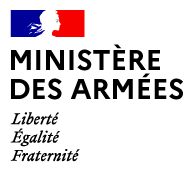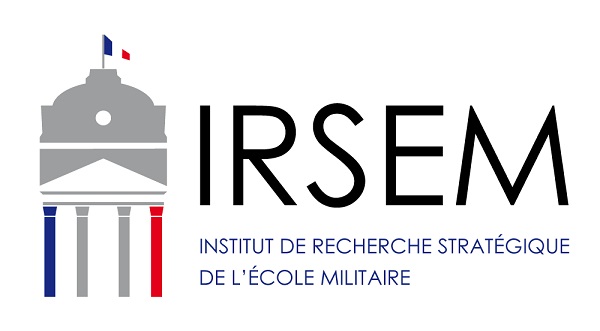Download Strategic Brief no. 47 - 2022
Saudi Arabia's the UAE's OPEC + oil policy emphasizes diverging interests with Western powers
Fatiha Dazi-Héni
The decision by the major Gulf oil-producing states to cut production in the context of OPEC+ has roused the ire of their strategic partners in the West. The United States in particular views the move as an alignment with Russia’s policy in Ukraine, while Riyadh and Abu Dhabi claim to be defending their economic interests and choosing a diplomatic balance between West and East.
The OPEC+ decision on October 5, 2022, to cut its oil production by two million barrels per day (bbl/d) is the biggest reduction to be decided in two years. In reality, this reduction concerns a little less than 1 million bbl/d because many OPEC+ member countries produce below their quotas. The cut is concentrated around Saudi Arabia, the UAE and Kuwait, three States with a reputation for being close to the West, hence the considerable discontent expressed by the United States and European states, which are the hardest hit by the OPEC+ decision to reduce their production quota. This decision weakens the position of the US President who is trying to contain fuel prices, few weeks before a decisive election for his party’s majority in Congress, and increases inflation. Furthermore, the OPEC+ cartel, formed in November 2016, has decided to extend its concerted efforts to maintain a stable barrel price until December 2023.
To the New York Times and the Washington Post, this decision is above all an affront to the Democratic president, three months after his visit to Jeddah on July 15 and 16, 2022. His objective was to convince the Saudi Crown Prince, Mohammed Bin Salman, to increase the kingdom’s oil output in order to curb the inflation of energy prices. Washington even sees the move as a display of Riyadh and Abu Dhabi’s support for President Putin, who is taking advantage of rising oil prices to continue his war in Ukraine. Saudi Arabia and the United Arab Emirates had already caused consternation in Western capitals when they abstained from voting on February 25, 2022 on the resolution condemning Russia’s invasion of Ukraine.
Above all, it has become clear that the strategy driven by the OPEC+ cartel’s oil producing states to defend their interests significantly diverges from US and European interests, but coincides with those of Russia. However, the use of the OPEC+ decision for political ends seems evident as it comes one month before the US Congress midterm elections (November 8, 2022). It weakens the Democratic Party, which Riyadh and Abu Dhabi, like Moscow, would like to see lose against the Republicans, renowned for being close to Gulf autocrats and rather lenient with President Putin before his invasion of Ukraine.
To stave off the G7’s wish to cap hydrocarbon prices, OPEC+ has chosen to reduce its production as of November 1, 2022, against the backdrop of China’s economic slowdown due to the Covid-19 pandemic and Europe’s plunge into recession. This highlights the growing divergence between the interests defended by the Gulf oil producers and those of their strategic partner, the United States, which has become the OPEC+ cartel’s main competitor on the oil market, with its shale oil and gas taking a growing share.
Riyadh and Abu Dhabi’s protection of their interests and market share is a crucial dimension of their oil policy; it may be in line with Moscow, but it may also diverge. As the oil price war in spring 2020 demonstrated, with the bitter opposition between Riyadh and Moscow, which caused the price of oil to fall from $76 to $20 in two months and below $0 for US Oil shale, the two main OPEC+ partners do not hesitate to clash when their interests differ. There is no guarantee that disagreements between Riyadh and Moscow will not arise again. For instance, the prospect of gradually increasing Russian oil and gas exports to the Asian market, especially to China, to the detriment of Saudi Arabia in particular, could lead Riyadh to oppose Moscow once again.
As a result, the Biden administration’s argument, relayed in US media, that the Saudi-Emirati decision to cut output boils down to aligning with Russia’s policy in its war in Ukraine, does not hold, even though the decision favors Moscow’s interests.
President Biden’s irritation with Riyadh and Abu Dhabi does little to conceal the failure of his political calculation, which consisted of trying to convince the two monarchies to keep the price of oil at 80 dollars in order to replenish his strategic reserve, in exchange for their agreement not to reduce their production quota. The revelation of this “secret deal” on the day of the OPEC+ decision significantly undermined the credibility of President Biden, whose Democratic Party had scuttled the same type of arrangement under Trump’s presidency in April 2020, but for a price of $24 per barrel, during the Covid-19 crisis and the oil price war. This controversy could have been avoided if President Biden had made the less risky political choice to tap into his strategic oil reserve.
With less than one month to go before a crucial election, Joe Biden is choosing to take an offensive tone, promising to use so-called “anti-trust” measures to denounce the monopoly that the cartel’s decisions are placing on the world economy. The Saudis reply that the measure has no chance of success, given that Washington has no viable solution to counter the OPEC+ strategy.
Will this tension between the Gulf States and the West affect their strategic relationship in a broader sense? The American electoral context and the economic and social tension in Europe are conducive to the escalating expression by Western States of their discontent with the OPEC+ decision. However, in the short term, the European continent has no alternative to fossil fuels from the Gulf. The Gulf is at the center of the European countries’ geopolitical game (LNG, Qatar; oil, Saudi Arabia, UAE, Kuwait) to find an alternative to Russian oil and gas, which they wish to be free from by the end of 2022.
This situation has prompted the EU to revive a strategic partnership process by publishing two documents in May 2022: “The Strategic Partnership with the Gulf” and “The EU external Energy Engagement in a Changing World”. The objective is to promote a comprehensive strategic approach that consists of combining energy security with maritime security on the strategic routes down which energy flows (the Strait of Hormuz and the Red Sea to the central Indian Ocean). The shift in Germany’s foreign policy towards reconciling its diplomacy based on the EU’s shared principles and values with the geopolitical necessity to strengthen technological, security and economic cooperation with the Gulf States, is indicative of the EU’s ambition to strengthen its position in the Gulf.
For the United States, the overriding strategic objective is to contain China’s advance in the world. This places the Gulf States at the heart of this ambition – in the hope that they reduce their technological cooperation with Beijing, which has become their leading trade partner. Washington is counting on the agreement between Israel and the Gulf States, since the signing of the Abraham Accords on September 15, 2020, as an alternative to the partnership with China.
The Gulf States intend to stay the course in defending their interests and will do so more by leveraging their multiple partnerships and through conniving relationships than by picking sides. Riyadh’s mediation effort to free ten Western prisoners held by Russia in September and Doha’s efforts with Presidents Zelensky and Putin, as well as the UAE president’s visit to Russia on October 11, reflect the diplomatic approach taken by the Gulf States to achieve an East-West balance. Abu Dhabi and Riyadh are seeking to establish themselves as mediators in the Ukraine conflict and maintain a good relationship with China without forsaking their strong partnership with Western powers.
Meanwhile, the decision to continue cooperation within OPEC+ stems from Riyadh and Abu Dhabi’s wish to keep Russia on their side so that the cartel can maintain its influence over the world oil market.



